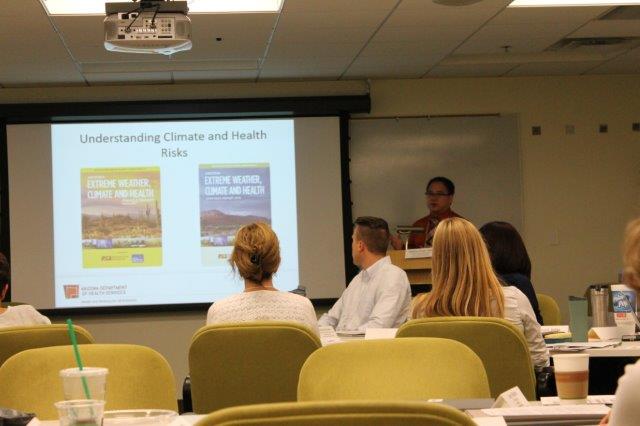 Weather hazards like extreme heat, flash flooding, dust storms, and wildfires often occur this time of year in Arizona. Last week, ADHS partnered with ASU to put together an interactive workshop where over 20 representatives from local health departments, environmental services, emergency management, transportation, weather service, and universities discussed weather hazards and the populations most vulnerable.
Weather hazards like extreme heat, flash flooding, dust storms, and wildfires often occur this time of year in Arizona. Last week, ADHS partnered with ASU to put together an interactive workshop where over 20 representatives from local health departments, environmental services, emergency management, transportation, weather service, and universities discussed weather hazards and the populations most vulnerable.
During the workshop, public health practitioners and researchers were able to identify the factors which put people at most risk during a weather event. Participants shared their experience on effective interventions that have helped them in the past to reduce the public health impact of these weather hazards. Public health interventions such as cooling centers, public service announcements, education campaigns, surveillance, and weather alert systems were brought up throughout the day.
Participants from different sectors that don’t traditionally work together were provided an opportunity to network and learn from each others expertise. Opportunities like this workshop are a valuable tool for effective strategic planning. Extreme weather hazards require a coordinated response from more than just the public health sector. By learning from each other, we can reduce weather-related health outcomes such as wildfire smoke inhalation, heat-related illness, or injury during a flash flood.









